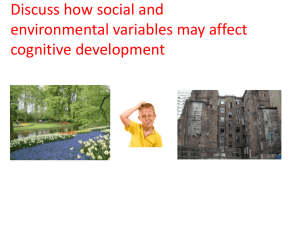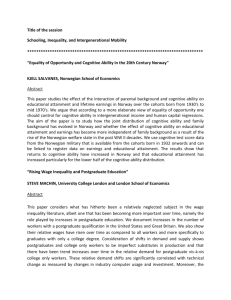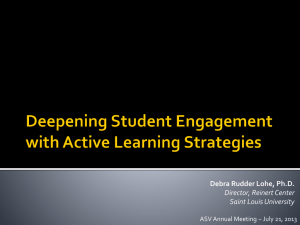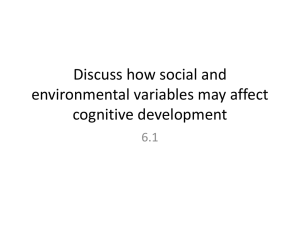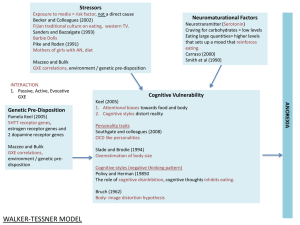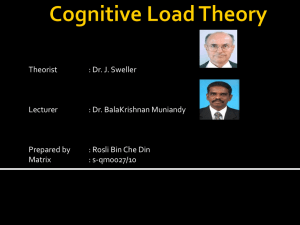Cognitive Development - Ms. Allison, Psychology
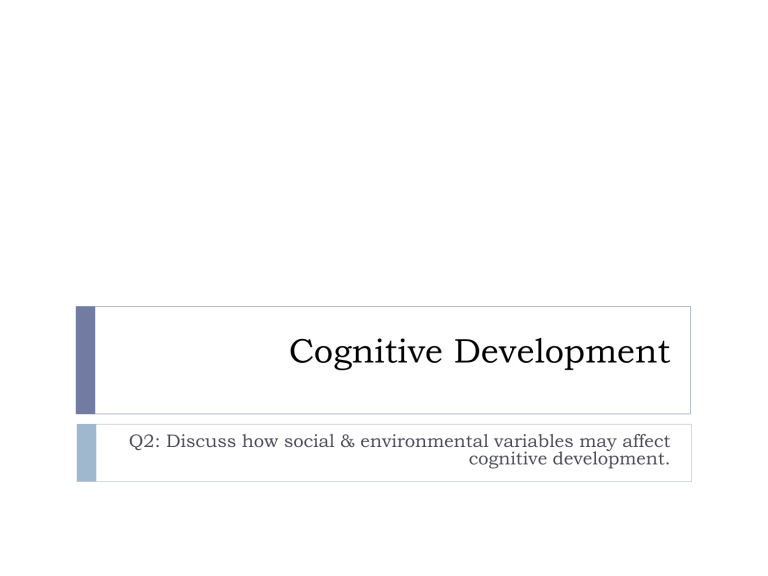
Cognitive Development
Q2: Discuss how social & environmental variables may affect cognitive development.
Approach
Intro
Background- social and environmental variables
Social: SES- family income and education, parental nurturance
Positive environmental variables: stimulation, enrichment, nutrition
Negative environmental variables: pollution, malnutrition. stress
Thesis: Social and environmental variables may affect cognitive development.
Body
Social- SES
Environmental- enrichment and nurturing
Conclusion
Social Variables
SES- linked to parenting & enrichment
One of the main risk factors in children’s cognitive development
Tied to poor nutrition, stressful home environment, exposure to crime, lack of access to quality education
Application: need for prenatal care and school lunch programs
National Center for Children in Poverty (2002)
1/3 rd of children from low-income communities who enter kindergarten are behind their peers
By their 4 th year, 50% are don’t meet standard reading proficiency
Moscovici (1993)- lay claim to the higher wisdom of common sense
Children who are loved and well cared for will given healthy food and opportunities
Isolating one variable (parenting, poverty) and attributing it to cognitive development lacks some degree of validity
Bhoomika (2008)- effect of malnutrition on cognitive performance in 20
Indian children (but older children showed less impairment)
Parental participation was twice as predictive of academic success as socioeconomic status
Reading at home enhances success (Tizard, 1982)
SES continued
Wertheimer (2003)
Children from poor families are
less likely to be labeled as academically gifted
Less likely to participate in extra-curricular activities more likely to repeat grades
More likely to suffer from learning disabilities
Generally less likely to attend university
Schoon (2002)- British study found increased risk of poor academic performance in poor families
Environmental Variables-enrichment and nurturing
Animal research-enrichment environments increases dendritic branching and stress interferes with normal brain development
Rosenzweig, Bennet and Diamond, 1972
Liu, 2000-prolonged maternal separation affected stress regulation and memory (hippocampus)
Farah, 2008
Aim: To investigate the relationship between environmental stimulation and parental nurturance on cognitive development
Longitudinal study of 110 AA MS children
Positive correlation between environmental stimulation and language development and between parental nurturance and memory
Abecedarian Project (Pungello, 2006)
111 infants enrolled from 1972-1977
Half received enrichment; other half as a control
Demonstrated beneficial effects of health care, nutrition and education
Evaluation
Strengths
Evidence
Application
Government funding of early childhood education and nutrition programs
Limitations- no clear cause and effect
Link between socio-economic status and individual development is still not fully understood
Seems to be a cumulative effect
Privileged children have more educational opportunities
access to role models and greater expectations
Poverty does not determine one’s success in life
Werner & Smith (1992)- longitudinal study of high-risk children: 1/3 rd had adjusted well to adult life

